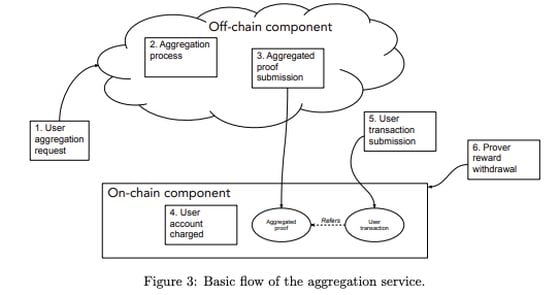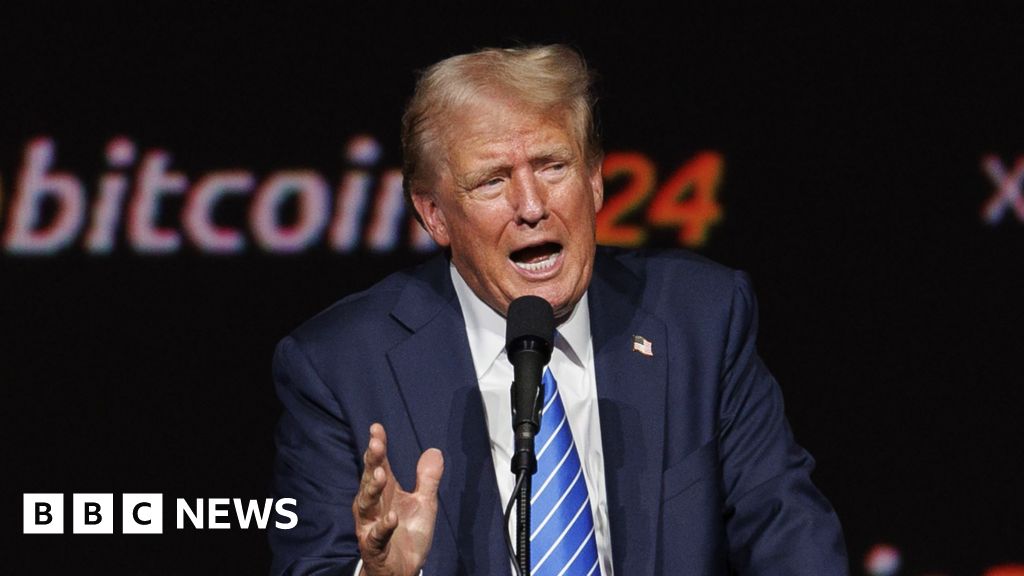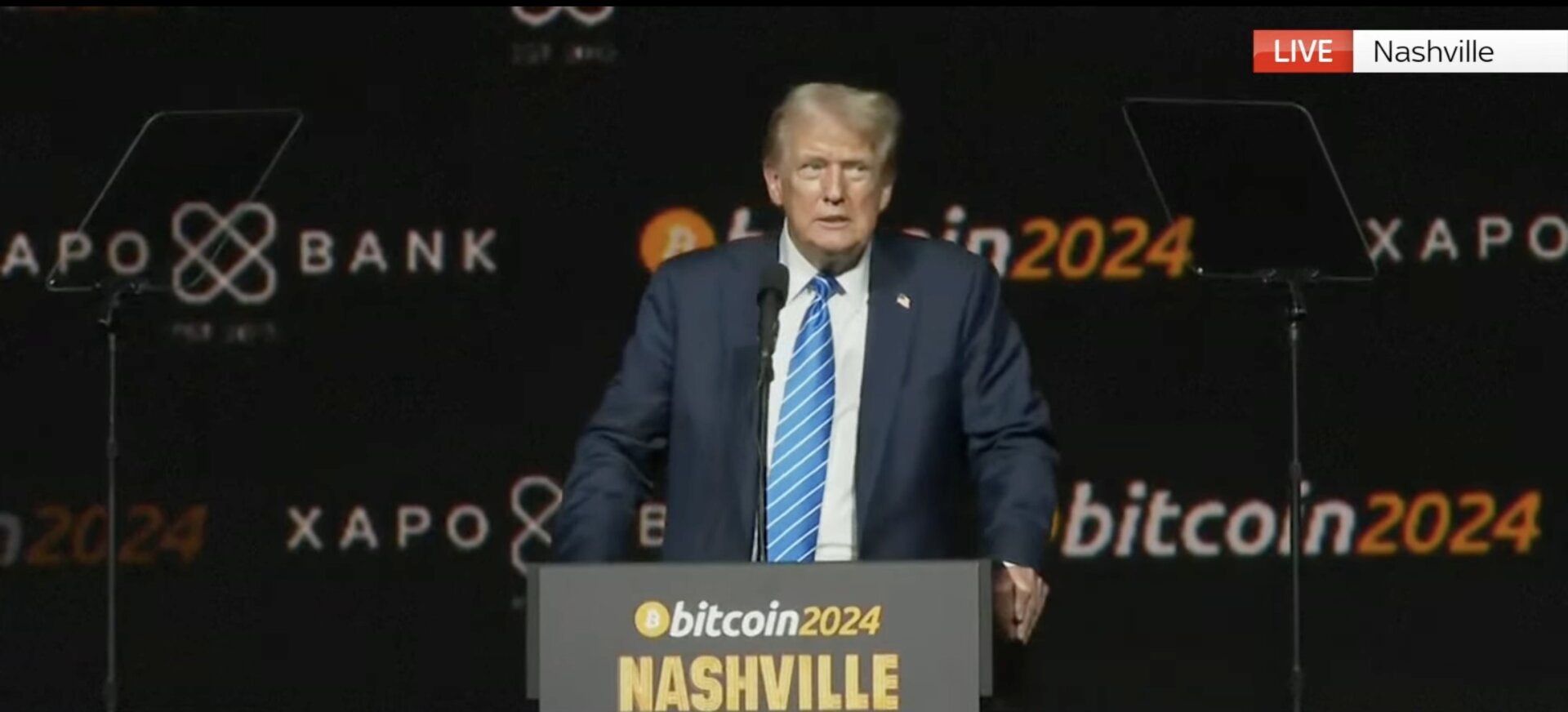Tech
The Latest Tech News in Crypto and Blockchain

Feb. 28: Fleek Network Testnet concluded the network’s edge computing features, establishing a foundation for future services, according to the team: “Developers tested the capabilities and performance through the deployment of edge-optimized JavaScript Functions. The results collected show that Fleek Network deployed edge functions can be significantly more performant than traditional cloud platforms like AWS Lambdas and Vercel Serverless. Deployed edge functions saw an average global TTFB of 37.02ms including the TLS handshake, 7x faster than AWS Lambdas and 2.7x faster than Vercel Serverless in global testing.”
Screengrab from Fleek Network blog post. (Fleek Network)
Babylon Announces Launch of ‘Trustless Bitcoin Staking Testnet’
Feb. 28: Babylon, the project that aims to build a Bitcoin-secured decentralized economy, announced the launch of the “world’s first trustless Bitcoin staking testnet,” according to the team: “Through its modular design and slashing functionality, Babylon’s Bitcoin Staking protocol allows proof-of-stake systems to introduce bitcoin as a staking asset and enjoy higher crypto-economic security than what native tokens can provide. The testnet is built on BTC Signet and no real Bitcoin is at stake. Users who complete the testnet process will be able to claim an NFT.” CoinDesk 20 asset: {{BTC}}
Pontem Launches L2 ‘SuperLumio,’ Supporting Both EVM and Move
Feb. 28: Pontem, a product development studio building Move and EVM-compatible products to enable a safer, more performant and developer-friendly Web3, will launch its EVM L2, SuperLumio, on mainnet, according to the team: “This launch marks a significant milestone as SuperLumio is the first L2 to support both EVM and Move VM. SuperLumio is designed to merge as part of Optimism Superchain, an emerging network of L2 chains. Additionally, SuperLumio also features support for Proto-Danksharding (EIP-4844), the Ethereum scaling solution that is set to reduce rollup fees by as much as 100 times.
Coinbase Moves to Improve Ethereum’s ‘Client Diversity’ by Adding Nethermind, Erigon
Feb. 28: Coinbase, the publicly traded U.S. crypto exchange, said it’s moving to help reduce risks on the Ethereum blockchain by adding support for two additional computer programs known as “clients” that users rely on to access and run the distributed network. In a blog post, Coinbase Cloud announced it’s adding support for the Nethermind and Erigon execution clients, “which will diversify the execution layer within our Ethereum staking nodes.” CoinDesk 20 asset: (ETH)
Decent Labs Launches ‘Lumen Proof’ to Verify Proof-of-Funds in DeFi
Feb. 28: Decent Labs, a Web3 accelerator and venture studio, launched “Lumen Proof, a proof-of-funds system for institutional, on-chain credit that makes DeFi safer without violating user privacy,” according to the team: “Lumen Proof addresses the critical need for transparent and verifiable proof-of-funds in DeFi by allowing borrowers to confidentially verify the funds they hold at a lender’s request without revealing position or trade history. With privacy-preserving borrower fund attestations, lenders can more accurately price lending pools, extend credit limits, and reduce default risk.”
BitGo Joins Hedera Council, Plans to Explore Expansion With Go Network
Feb. 28: BitGo, the leading digital asset trust and security company and a legacy player in the crypto space, has today joined the Hedera Council, according to the team: “As a member of Hedera’s Council, BitGo plans to explore further opportunities to expand offering support with the Go Network, its real-time USD and digital-asset settlement network.” (HBAR)
BounceBit Closes $6M Funding Round to Build Bitcoin Restaking Infrastructure
Feb. 28: BounceBit closed a $6-million funding round to build BTC Restaking infrastructure, according to the team: “The round was led by Blockchain Capital and Breyer Capital. Participation from dao5, CMS Holdings, Bankless Ventures, NGC Ventures, Matrixport Ventures, Primitive Ventures, Arcane Grp., IDG Capital, Bixin Ventures, Nomad Capital, Geekcartel, DeFiance Capital, General Mining Research, OKX Ventures, Mirana Ventures, HTX Ventures, Mexc Ventures. Angels: Nathan from Anchorage, Calvin & Jessy from Eigenlayer, Kevin & Ashwin from Brevan Howard, George Lambeth, Pranay Mohan, James Parillo, RookieXBT, MacnBTC.”
Stake.link Launches Cross-Chain Staking on Arbitrum
Feb. 28: Stake.link, the delegated liquid staking protocol for the Chainlink ecosystem, has announced the availability of cross-chain staking on Arbitrum, the biggest layer-2 network on the Ethereum blockchain, according to the team: “The move enables stake.link to establish a second home on Arbitrum where it will be able to continue delivering the most refined Chainlink staking experience for users who will no longer have to pay exorbitant gas fees to stake LINK and earn rewards.” CoinDesk 20 asset: {{LINK}}
Solana Veterans Raise $17M For ‘Backpack’ Crypto Wallet, Exchange
Feb. 28: Longtime Solana contributor Armani Ferrante’s crypto wallet and exchange company Backpack has raised $17 million in a funding round led by Placeholder VC, according to a press release. The Series A raise comes at a valuation of $120 million, a sign of strength for the company that fewer than two years ago told The Block it went into “cockroach mode” when its key previous backer, FTX, imploded and sent most of the startup’s $20 million funding to goblin town.
Liquid Restaking Protocol Ether.Fi Raises $23M Series A
Feb. 28: Ether.fi, the biggest liquid restaking protocol, has raised $23 million in a Series A round led by Bullish Capital and CoinFund. The round also included investment from OKX Ventures, Foresight Ventures, Consensys and Amber, among others. CoinDesk is owned by the Bullish Group.
ContributionDAO Secures $2.8M in Seed Funding
Feb. 28: Singapore-based staking platform ContributionDAO secured $2.8M in seed funding led by KASIKORN X Venture Capital, alongside prominent Web3 firms and angel investors, to bolster their institutional-grade staking solutions and community management tools, according to the team: “The funding aims to fuel expansion into the Southeast Asian blockchain market and enhance global project engagement.”
Protocol Village is a regular feature of The Protocol, our weekly newsletter exploring the tech behind crypto, one block at a time. Sign up here to get it in your inbox every Wednesday. Project teams can submit updates here. For previous versions of Protocol Village, please go here. Also please check out our weekly The Protocol podcast.
Validation Cloud, Web3 Data Streaming and Infrastructure Company, Raises $5.8M
Feb. 27: Validation Cloud, a global node infrastructure provider, raised $5.8 million, led by San Francisco-based Cadenze ventures, and included VCs such as Bloccelerate, Blockchain Founders, Side Door, to provide the necessary foundations for enterprise adoption in Web3, according to the team: “The funds will increase Validation Cloud’s strong reputation as a leading Web3 infrastructure provider while supporting ecosystems such as Chainlink, Hedera, and Stellar, including emerging networks like Aptos, Eigenlayer and more.”
Geodnet Raises $3.5M for ‘World’s Largest Real-Time Kinematics Network’
Feb. 27 (PROTOCOL VILLAGE EXCLUSIVE): Geodnet has raised $3.5 million to build “the world’s largest real-time kinematics network,” according to the team. “The round was led by North Island Ventures, with participation from Modular Capital, Road Capital, Tangent and Reverie, who join existing Geodnet backers Borderless and IoTeX. Geodnet is a community-based Decentralized Physical Infrastructure Network (DePIN). Anybody can contribute to the network by installing and operating a reference station known as a Satellite Miner. Standard GPS is usually off by two meters; yet, devices connected to Geodnet’s global RTK network can achieve instant accuracy within 1-2 centimeters.”
Safe Announces Web3 Developers on Coinbase’s Base Network Are Eligible for Gas Fee Credits
Feb. 27: Safe, the smart-account infrastructure provider, has joined forces with Coinbase’s Ethereum layer-2 network, Base, to offer financial incentives and modular tooling for developers building with smart accounts, according to the team: “Web3 developers building with Safe smart accounts on Base can receive up to 1 ETH in gas fee credits. With Safe{Core}, Safe’s modular and open-source stack, developers can leverage smart account infrastructure to build tools for a range of use cases on Base.” CORRECTION (March 4, 14:54 UTC): An earlier version of this item said that Base was “offering ‘up to $120K in funding’ available to ecosystems in the initial 12-month launch of the program,” in gas credits for developers building on Safe. After publication the team reached out to CoinDesk to ask us to remove the $120K figure and instead write that “Web3 developers building with Safe smart accounts on Base can receive up to 1 ETH in gas fee credits.”
Lens Protocol Launches Out of Beta, Goes Permissionless
Feb. 27: Lens Protocol, a decentralized social media platform that’s a sister project to the lending protocol Aave and led by Stani Kulechov, is launching out of beta and going permissionless, according to the team: “While in beta, users could join through invites, but there was a waitlist to mint a user profile. Before today, any builder could contact Lens or join a Lens hackathon to build on Lens. Now permissionless, anyone can mint a profile by going to Lens.xyz, and any builder can get started by accessing Lens documentation docs.lens.xyz, where there are easy instructions on how to get started. Lens has taken a series of steps to prepare for permissionless, such as Momoka, Open Actions, improved social graph API & more.”
Dune Unveils ‘Datashare’ to Streamline Access Through Snowflake Marketplace
Feb. 27: For the past six years, Dune has led the charge in democratizing access to crypto data, establishing itself as the foremost authority in the blockchain sector with an extensive repository of 1.5 million datasets, according to the team. Now, there’s “a significant step forward as Dune unveils Dune Datashare, streamlining access to its meticulously curated crypto data through the Snowflake Marketplace. This pivotal development addresses the longstanding challenge of deciphering complex publicly available crypto data, paving the way for industries and companies to seamlessly transition into the realm of Web3.”
Ripple, Axelar Foundation Partner on XRP Ledger Integration
Feb. 27: Ripple and Axelar Foundation are partnering to integrate the Axelar network with XRP Ledger, according to the teams: “Axelar network’s integration with the XRPL aims to help bolster the XRPL DeFi ecosystem by providing essential liquidity for stablecoins and large-cap assets. Developers will also be able to capitalize on the XRPL’s built-in features such as the native DEX, the upcoming AMM, and payments system recognized for its security and efficiency. Additionally, Axelar network will help facilitate the deployment of cross-chain dApps directly on the XRPL.”
Marketing Exec Held Joins Asymmetric to Start Bitcoin DeFi Venture Fund
Feb. 27: Dan Held, a former Kraken marketing executive who recently has been serving as fractional CMO for Taproot Wizards and Trust Machines, is joining Joe McCann’s crypto fund, Asymmetric Financial, as a general partner, with plans to spearhead a new Bitcoin DeFi Venture Fund I. They are targeting a raise of $21 million.
Binance Labs Invests in Bitcoin Staking Protocol Babylon
Feb. 27: Binance Labs, the venture capital and incubation arm of Binance, has invested an undisclosed sum in Babylon, a Bitcoin staking protocol, according to a blog post. It “pioneers the concept of native bitcoin staking, allowing users to stake bitcoins for PoS blockchains and earn yields without any third-party custody, bridge solutions or wrapping services. It provides slashable economic security guarantees to the PoS chains while ensuring efficient stake unbonding to enhance liquidity for Bitcoin holders.” CoinDesk 20 asset: (BTC)
Fluence DAO Announces Launch of FLT, Native Token for Fluence Network
Feb. 27: Fluence DAO, the governing body of Fluence, the first decentralized serverless computing network, announced the launch of FLT, according to the team. It’s “the native token for the network on Ethereum mainnet alongside the Fluence Platform, which is being deployed on InterPlanetary Consensus (IPC), making Fluence’s “Cloudless” computing platform generally available for the first time. Launching the platform on InterPlanetary Consensus enables high-throughput marketplace of compute resources plugged with massive amounts of data in Filecoin.”
ZkMe, Aptos Foundation to Provide On-Chain Identification Verification
Feb. 27: ZkMe and Aptos Foundation are partnering to provide an accessible and straightforward way for users to verify identities on-chain while maintaining their confidentiality, according to the team: “With this partnership, zkMe’s identity oracle will be integrated into the Aptos ecosystem and will be automatically available to all developers and creators building on Aptos. ZkMe’s identity oracle will also allow cross-chain verifications to enable interoperability between Aptos and other chains.” (APT)
Aethir Plans First Decentralized AI Node Sale on March 20
Feb. 27: Aethir, a decentralized GPU cloud infrastructure provider, announcing its first decentralized AI node sale, starting March 20, according to the team: “Aethir is a decentralized GPU cloud infrastructure provider that aims to address the surging demand for GPU compute power in AI and gaming industries. The sale allows individuals and organizations to run nodes and earn rewards. This decentralized approach is crucial as traditional centralized cloud infrastructure struggles to meet the computational needs of generative AI and gaming apps.”
INTMAX Launches Plasma Next on Mainnet Alpha
Feb. 27: INTMAX launched Plasma Next on mainnet alpha, an innovative layer-2 ZK-rollup with stateless architecture, according to the team: “Co-founder Leona Hioki presented it at ETHDenver, achieving scalability using Plasma framework principles. It scales with a constant block cost, akin to original Plasma’s goals, while maintaining ZK-rollups’ security. Plasma Next employs bulk-token-transfer, Merkle Trees, and ZKP-TLC for conditional payments, ensuring constant state growth per block. This eliminates the requirement for user-provided liquidity or constant online presence, enhancing user experience and network efficiency.”
Solana Foundation Hackathon ‘Renaissance’ Kicks Off on Colosseum
Feb. 27: Registration for the Solana Foundation’s ninth hackathon, Renaissance, kicked off today on Colosseum, according to the team: “So far, more than 2,000 builders from 92 countries have created builder profiles on Colosseum, and are using the platform to match with co-founders, discuss product ideas, and register to compete for over $1 million in prizes across DeFi, consumer apps, DePIN, gaming, DAO & startup communities and infrastructure tracks. Select winners of the Renaissance hackathon will be selected to join Colosseum’s first Accelerator cohort, with each team receiving $250,000 in pre-seed capital.” CoinDesk 20 asset: {{SOL}}
Peaq Foundation Says Former Cisco Exec Ganser Joins to Focus on Enterprise Sector
Feb. 27: Michael Ganser, former CEO of Cisco Germany and Cisco’s ex-senior VP for EMEA, has joined the Peaq Foundation in an executive role to enhance its enterprise strategy, according to the team: “The foundation, supporting peaq blockchain for real-world apps, aims to grow in the enterprise sector with Ganser’s appointment. With years of business insight, Ganser, an advisor and early investor in peaq, is set to enhance its appeal to traditional businesses by leveraging his network and experience, building on collaborations with Bosch and more.”
Anchorage Digital Shares Full Access to Institutional Self-Custody Wallet ‘Porto’
Feb. 26: Anchorage Digital, a digital-asset custody firm, shared full access to its new institutional self-custody wallet, Porto. According to a post on its website, Porto is “built for any security-first institution with:
-
Hardware-enforced logic: Our industry-leading Hardware Security Modules (HSMs) strengthened with proprietary custom logic ensure only your organization can ever access your assets.
-
Tamper-proof hardware: Porto HSMs are tamper-resistant with FIPS 140-2 policy and proprietary high-depth private key security.
-
Biometric authentication: Porto uses neither passwords nor user names, both vulnerable to exploits, replacing them with superior and convenient biometric authentication. All approvals are biometrically authenticated, removing the need for carrying around additional hardware.”
Polkadot Canary Network Kusama Activates ‘Beefy’ Consensus
Feb. 26: Polkadot canary network Kusama announced the activation of a new consensus protocol, Beefy, designed to “enable seamless verification of the blockchain on Ethereum and other EVM-compatible networks, according to the team: “A key feature is the introduction of two innovative bridges: Snowbridge, a common-goods bridge that directly connects Kusama to Ethereum to enhance the flow of information and transactions, and Hyperbridge, which provides secure interoperability with Ethereum’s fragmented layer-2 networks and emerging new chains.” CoinDesk 20 asset: (DOT)
Avail, an Ethereum Data Network to Rival Celestia, Raises $27M In Seed Round
Feb. 26: Avail, among a handful of new “data availability” blockchain projects designed to handle transaction data produced by the increasingly sprawling networks, announced on Monday a $27 million fundraising led by the venture capital firms Founders Fund and Dragonfly. Avail, spun out of Polygon in March 2023 and is led by a Polygon co-founder, Anurag Arjun, will use funds from the seed round to develop three of core products: its data availability solution (DA), Nexus and Fusion, collectively marketed as the “Trinity.”
Pyth Price Feeds Launch on Hedera
Feb. 26: Pyth Network, a blockchain oracle protocol, announced that its price feeds have officially launched on Hedera, an open-source public distributed ledger. The price feeds are already on more than 40 blockchain ecosystems, including Solana, many EVM chains, Aptos, Sui, NEAR and several Cosmos chains.
EtherMail Launches ‘Email-as-a-Wallet’ Solution
Feb. 26: EtherMail, describing itself as a Web3 email solution, has launched its email-as-a-wallet (EaaW) solution, enabling users to create non-custodial wallets through Gmail or Apple accounts in under one minute, according to the team: “EaaW provides a familiar and easy entry point for users to explore the Web3 space, allowing them to circumvent the steep Web3 learning curve. EaaW allows users who currently don’t have a digital wallet to access Web3 services as well as seamlessly buy, send and receive digital assets. EaaW includes a ‘know what you sign’ feature, allowing users to review transaction details as an email before signing the transaction.”
Vibrant Finance DEX Deploys on Neon EVM
Feb. 25: Vibrant Finance DEX, backed by Izumi, deployed its DL-AMM-modeled DEX on Neon EVM to expand into non-Ethereum-based DeFi ecosystems, according to the team: “Integrating Vibrant Finance into Neon EVM gives users an enhanced trading experience and increased capital efficiency, signifying a substantial advancement in DeFi that combines the strengths of Ethereum’s framework and Solana’s performance.”
Layer-1 Network Flare Raises $35M From Kenetic, Aves Lair
Feb. 23: Flare, describing itself as a layer-1 network for data, has raised $35 million in a private round that included investment from Kenetic, Aves Lair and others, according to a press release. Flare supports the creation of smart contract protocols and focuses on pricing oracles, which relay asset prices to and from various decentralized finance (DeFi) applications.
Research Paper Details ‘Snarktor,’ Featuring ‘Recursive Proof Aggregation’
Feb. 22: Researchers at Telos Foundation, supporting the Telos blockchain, and Input Output Global, known for its work on the Cardano blockchain, have teamed up to publish a white paper revealing a new protocol, “Snarktor,” that developers can leverage to scale blockchains more efficiently and securely across millions of use cases via the integration of zk-SNARK technology. According to the abstract for the paper, published in Cryptology ePrint Archive: “We present a new protocol for decentralized recursive proof aggregation allowing one unique proof to aggregate many input proofs to be efficiently verified on-chain, increasing the throughput and cost efficiency of SNARK-based blockchains. The protocol is designed for decentralized environments where independent actors (provers) can join and contribute to the proof generation process.”
 Schematic from the paper illustrating the basic flow of the “Snarktor” aggregation service. (Alberto Garoffolo, Dmytro Kaidalov and Roman Oliynykov/Cryptology ePrint Archive)
Schematic from the paper illustrating the basic flow of the “Snarktor” aggregation service. (Alberto Garoffolo, Dmytro Kaidalov and Roman Oliynykov/Cryptology ePrint Archive)
Vault, Self-Custody Wallet from Uphold, Exits Two-Month Beta Phase
Feb. 22: Vault, an assisted self-custody wallet by the global Web3 financial platform Uphold, is exiting the three-month beta phase on Thursday. According to the team: “The previous beta phase has seen a significant volume of $24M in assets traded amongst the select group of beta users. Following a diligent community feedback session, the Uphold team saw roughly 80% of surveyed users found Vault easy to understand and simple to use when moving and managing funds.”
Helius Closes $9.5M Series A Round, Led by Foundation Capital
Feb. 22: Helius on Thursday announced the successful closing of a $9.5 million Series A round, according to the team: “Helius, founded by former Coinbase and Amazon Web Services software engineers, has built a suite of tools designed to enhance the developer experience on Solana. The round was led by Foundation Capital, with participation from Reciprocal Ventures, 6th Man Ventures and Solana ecosystem founders, among other funds and investors.” CoinDesk 20 asset: {{SOL}}
Alchemy Launches ‘Modular Account’ for Ethereum L2 Developers
Feb. 22: Alchemy just launched Modular Account, “a bold step forward in making the Web3 ecosystem more broadly accessible to non-technical users through dramatically improved UX,” according to the team. “Imagine trying to onboard the layman with no prior blockchain exposure and describing the various nuances of cold wallets, private keys, gas, nonces, etc. Modular Account is a new contract account implementation designed from the ground up for ERC-4337 and ERC-6900 compatibility. Modular Account provides enterprise-grade security, best in class cost, and robust account extensibility to developers building on Ethereum L2s.”
Eigen Labs, Developer Behind Restaking Protocol EigenLayer, Raises $100M From A16z Crypto
Feb. 22: Eigen Labs, the developer behind EigenLayer, the crypto restaking project atop Ethereum that is shaking up the decentralized finance landscape before it’s even gone live, raised $100 million from venture capital investor a16z crypto. Eigen Labs confirmed the investment in a thread on the social media platform X.
POKT Network Pushes Final Upgrade on Morse Protocol, in Advance of Shannon Upgrade
Feb 22: POKT Network, describing itself as the “RPC base layer,” says its Morse protocol has received its final update, marking a shift towards the Shannon upgrade. According to the team: “Launched on July 28, 2020, with Ethereum and POKT Network, it quickly advanced decentralized infrastructure. This update introduces AI support and improvements in non-custodial staking, reflecting Morse’s evolution and community contributions. Achieving over 700 billion relays across 60+ chains, Morse sets the stage for Shannon, enhancing network sustainability and capacity.”
Astar Network Developer Startale Labs Raises $3.5M
Feb. 22: Astar Network developer Startale Labs, a developer of Japanese Web3 products, Aiming to accelerate the mass adoption of Web3, has raised an additional $3.5 million from UOB Venture Management and Samsung Next, according to the team: “This brings the total seed round funding to $7 million, combined with a $3.5 million investment from Sony Network Communications in June 2023.”
DWallet Labs Announces Testnet Launch of ‘dWallet Network’
Feb. 22: DWallet Labs announced the testnet launch of dWallet Network, a first-of-its-kind composable modular signature network. According to the team: “The dWallet Network introduces a new primitive for multi-chain collaboration in Web3 – dWallets – a noncollusive and massively decentralized signing mechanism that can be used as a building block on L1s and L2s to sign native transactions to all chains. With assets always staying on their native chains, eliminating the cross-chain risks of wrapping, bridging or messaging. It’s the first-of-its-kind composable modular signature network built on dWallet’s new protocol 2PC-MPC.”
Binance Labs Invests in Renzo to Support Liquid Restaking on EigenLayer Ecosystem
Feb. 22: Binance Labs, the venture capital and incubation arm of Binance, has invested in Renzo, a Liquid Restaking Token (LRT) and strategy manager for EigenLayer, built to promote the widespread adoption of EigenLayer. “Renzo Protocol, an EigenLayer restaking hub, consists of Ethereum smart contracts that facilitate trustless collaboration between stakers, node operators, and Actively Validated Services (AVSs),” according to the team.
Clave Raises $1.6M in Pre-Seed Funding Round, Led by Matter Labs
Feb. 22 (EXCLUSIVE): Clave, a fintech dApp start-up aiming to provide an easy user experience for everyone to accelerate their on-chain journey, has raised $1.6M in a pre-seed funding round led by Matter Labs, the developer behind the layer-2 network zkSync. “The round also saw participation from Safe, Lambda Class and Mirana Ventures, as well as angel investors Sandy Peng of Scroll, Raj Parekh of Portal, Anurag Arjun of Avail, and many more industry leaders.”
Arbitrum Foundation Says Smart-Contracts Auditor OpenZeppelin Expanding to Arbitrum Stylus
Feb. 22: Arbitrum Foundation, supporting the Ethereum layer-2 network Arbitrum, announced a partnership with OpenZeppelin, a smart-contracts code auditor, “to enable next-generation development on Arbitrum Stylus,” according to the team: “What is Arbitrum Stylus? Stylus is an upgrade to Arbitrum Nitro, the tech stack powering Arbitrum One, Arbitrum Nova and Arbitrum Orbit chains. It opens the door for developers to write smart contracts in various languages, such as Rust, C, and C++, that compile to WebAssembly (WASM). OpenZeppelin Contracts and Defender will be getting expanded to Arbitrum Stylus while supporting builders in the ecosystem with best-in-class security services.” (ARB)
Aave Plans Expansion to BNB Chain
Feb. 22: Aave, the largest DeFi money market protocol, “with strong governance support from the community, is coming to BNB Chain,” according to the BNB team.
– “This move further expands the BNB Chain DeFi ecosystem, joining other industry heavyweights like Uniswap, Ambit Finance, PancakeSwap and Lista DAO.”
– “BNB Chain users will now have access to an industry leading lending platform and with strong liquidity on FDUSD, will be able to engage in more DeFi related activities.”
– “Aave users will benefit from being integrated with one of the largest DeFi ecosystems and have access to BNB Chain’s low fees.”
Wormhole Collaborates With AMD to Make Hardware Accelerators
Feb. 22: Wormhole, a blockchain interoperability platform, announced a collaboration with microprocessor maker AMD that will make enterprise grade AMD FPGA hardware accelerators available to the Wormhole ecosystem, including the AMD Alveo™ U55C and U250 adaptable accelerator cards. AMD will also lend its deep hardware acceleration expertise to help deliver speed and scalability to multichain applications being built with Wormhole. “AMD offers enterprise-grade FPGAs that are based on the most advanced architectures for scalable compute and flexibility for a breadth of applications. FPGAs can parallelize massive workloads, such as processing millions of multichain messages on Wormhole,” according to a blog post on AMD’s website.
 Accelerator cards featured in AMD’s blog post on Wormhole collaboration (AMD)
Accelerator cards featured in AMD’s blog post on Wormhole collaboration (AMD)
Inco Secures $4.5M in Seed Round, Launches Testnet ‘Gentry’
Feb. 22: Inco, leading developer of a universal confidentiality layer for Ethereum and other networks, has secured $4.5 million in a seed round led by 1kx, and launched its testnet Gentry. According to the team: “The testnet addresses Web3’s confidentiality challenges, blending EVM with FHE and secured by Ethereum via EigenLayer. With native on-chain confidentiality and randomness, Inco empowers diverse dApps including gaming, DeFi, private lending and blind auctions.”
Meso Network Raises $9.5M, Co-Led by Solana Ventures and Ribbit Capital
Feb. 22: Meso, a payment platform connecting banks and blockchains, announced it has raised $9.5 million in a seed round, co-led by Solana Ventures and Ribbit Capital, with participation from 6th Man Ventures, Canonical Crypto, Phantom Co-Founder Chris Kalani, Pinterest CEO Bill Ready and Archie Puri of Bodhi Labs. According to the team, “the network was launched by veterans from PayPal, Venmo and Braintree. Apps can integrate Meso to onboard users without first sending them off to a centralized exchange to fund their wallets.” Meso currently supports Ethereum, Solana and Polygon, and will add Arbitrum, Optimism and Base by the end of Q1.
Tech
The Information Hires Peterson to Cover Tech, Finance, Cryptocurrency

My life is nice
Tech news site The Information has hired Business Insider actress to cover technology, finance and cryptocurrencies.
She was part of Business Insider’s investigative team. She was also previously a corporate technology reporter and a technology deals reporter.
Peterson has been with Business Insider since June 2017 and is based in the San Francisco office.
She previously worked for Folio as an associate editor. She holds a bachelor’s degree from the University of California-Davis and a master’s degree from New York University.
Chris Roush
Chris Roush is the former dean of the School of Communications at Quinnipiac University in Hamden, Connecticut. Previously, he was the Walter E. Hussman Sr. Distinguished Professor of Business Journalism at UNC-Chapel Hill. He is a former business reporter for Bloomberg News, Businessweek, The Atlanta Journal-Constitution, The Tampa Tribune, and the Sarasota Herald-Tribune. He is the author of the leading business journalism textbook, Show Me the Money: Writing Business and Economics Stories for Mass Communication, and of Thinking Things Over, a biography of former Wall Street Journal editor Vermont Royster.
Tech
Trump Courts Crypto Industry Votes, Campaign Donations

About the article
- Author, Brandon Livesay
- Role, BBC News
-
July 27, 2024
Donald Trump said at one of the biggest cryptocurrency events of the year that if he is re-elected president, he will fire the chairman of the U.S. Securities and Exchange Commission (SEC) on his first day.
On Saturday, Trump was the keynote speaker at Bitcoin 2024, a gathering of industry heavyweights in Nashville, Tennessee.
The Republican presidential candidate used the event to woo voters and encourage the tech community to donate to his campaign.
Cryptocurrencies have emerged as a political battleground for Republicans, with Trump saying that the Democratic Party and Vice President Kamala Harris were “against cryptocurrencies.”
The crowd was at its most animated when Trump declared, “On day one, I will fire Gary Gensler,” the SEC chairman appointed by now-President Joe Biden. The crowd applauded loudly and began chanting “Trump” at this statement.
SEC files charges against ‘Cryptocurrency King’ Sam Bankman-Frittosentenced to 25 years for stealing billions of dollars from customers of his cryptocurrency exchange FTX.
Speaking for about 45 minutes, Trump outlined some of his ideas for the industry if he wins the November election. He said he would make the United States the crypto capital of the world. His support for the sector is a 180-degree reversal from his comments in 2021, when he told Fox Business he saw Bitcoin as a “scam” that influence the value of the US dollar.
Trump told the crowd at the event that he would retain 100% of the Bitcoin currently owned or acquired by the U.S. government, adding that it would be a “national stockpile of Bitcoin.”
The former president also said he would “immediately appoint a presidential advisory council on Bitcoin and cryptocurrencies.”
He talked about the power needed to mine cryptocurrencies. “It takes a lot of electricity,” he said, adding that he would build power plants “to do that” and that it would “use fossil fuels.”
In recent months, some tech leaders have seen growing support for Trump’s presidential campaign. Tesla founder Elon Musk, who is the world’s richest person, has backed Trump. And cryptocurrency moguls the Winklevoss twins, who attended his speech on Saturday, have also come out in support.
Trump noted that his campaign accepts cryptocurrency donations, saying that in the two months since allowing cryptocurrency transactions, he has received $25 million (£20 million) in donations. However, he did not say how much of the payments came from cryptocurrency.
Trump used his speech to frame cryptocurrency regulation as a partisan issue, saying the Biden administration was “anti-crypto.”
Several Republican lawmakers also attended Trump’s speech, including Senators Tim Scott and Tommy Tuberville. Former Republican presidential candidate and Trump ally Vivek Ramaswamy was also in attendance.
The event was also attended by independent presidential candidate Robert F Kennedy Jr. and Democratic Party congressmen Wiley Nickel and Ro Khanna.
Earlier, during Bitcoin 2024, Democratic Congressman Nickel said that Kamala Harris was taking a “forward-thinking approach to digital assets and blockchain technology.”
Tech
WazirX Crypto Exchange Hack and Its Bounty Program: What Does It Mean for Crypto Investors in India?

On July 18, India Cryptocurrency exchange WazirX has been hit by a cyber attack which resulted in the loss of over $230 million worth of digital assets from one of its wallets. The exchange responded by suspending regular trading and reporting the incident to Indian authorities and other cryptocurrency exchanges. The company also launched two reward programs for ethical hackers who can help the exchange trace, freeze, and recover stolen funds.
WazirX said there was a cyberattack on a multi-signature wallet operated through a digital asset custodian service known as Liminal. Multi-signature wallets have a built-in security feature that requires multiple parties to sign transactions.
“The impact of the cyberattack is over $230 million on our clients’ digital assets,” WazirX said in a blog post, adding that INR funds were not affected. The company has firmly denied that WazirX itself was hacked and has brushed aside rumors that it was tricked by a phishing attack.
The exchange also noted that it was “certain” that its hardware keys had not been compromised, adding that an external forensic team would be tasked with investigating the matter further.
But Liminal, after completing its investigation, said: “It is clear that the genesis of this hack stems from three devices compromised by WazirX.”
Meanwhile, WazirX founder and CEO Nischal Shetty said that the attack would have been possible only if there were four points of failure in the digital signature process.
Who is behind the cyber attack?
WazirX has not yet disclosed the suspected parties or perpetrators responsible for the hack. However, news reports have emerged that North Korean hackers were responsible for the incident.
On-chain analytics and other information indicate “that this attack was perpetrated by hackers affiliated with North Korea,” blockchain analytics platform Elliptic said.
In response to The Hindu’s questions to WazirX about the North Korean hackers, cryptocurrency exchange WazirX directed us to its blog and said it was working with law enforcement to investigate whether a known malicious group was behind the attack.
“This incident affected the Ethereum multisig wallet, which consists of ETH and ERC20 tokens. Other blockchain funds are not affected,” WazirX said in its official blog, specifying that approximately 45% (according to preliminary work) of cryptocurrencies were affected by the attack.
The company largely placed the blame on the process of securing Ethereum multisig wallets and said that the vulnerability was not unique to WazirX.
How important is WazirX in the cryptocurrency industry?
WazirX calls itself India’s largest cryptocurrency exchange by volume. As of June 10, it reported total holdings of ₹4,203.88 Crores, or 503.64 million USDT. Tether [USDT] It is a stablecoin, that is, a cryptocurrency pegged to the value of the US dollar, but it is not an official currency of the United States.
When The Hindu tried to access WazirX Public and Real-Time Reserve Proof After the hack, we were greeted with a notice that the page was under maintenance.
WazirX has received both positive and negative reviews in India. The Enforcement Directorate froze the exchange’s assets in 2022, criticizing its operating procedures and lax Know-Your-Customer (KYC) and Anti-Money Laundering (AML) regulations.
“By encouraging obscurity and adopting lax AML norms, it has actively assisted around 16 accused fintech companies in laundering proceeds of crime using the cryptocurrency route. Accordingly, equivalent movable assets amounting to Rs 64.67 Crore in possession of WazirX have been frozen under the PMLA, 2002,” the ED said in a statement.
What will happen to WazirX assets?
It is unlikely that the stolen WazirX assets will be fully recovered anytime soon. This is due to the very nature of cryptocurrency, where assets can be easily mixed, transferred, converted, and sent to anonymous wallets. The chances of asset recovery are even slimmer if it is confirmed that North Korean hackers are behind the incident.
CEO Shetty said on X on July 22 that “small” portions of the stolen funds had been frozen, but declined to provide further details. He added that the majority of the funds had not been moved from the attacker’s wallet.
In recent years, North Korean hackers have stolen billions of dollars in cryptocurrency, aiming to circumvent various financial and economic sanctions.
WazirX is currently working to resume normal operations and has planned to launch an online survey to decide how to resume trading on the platform.
While the Indian exchange has defended its security practices and highlighted the challenges facing the cryptocurrency industry as a whole, savvy crypto traders will be looking for action plans and accountability, rather than emotional reassurance.
What does your rewards program consist of?
WazirX has announced two bounty programs: one to gain more information about stolen funds, and the other to recover them. Both programs are open to everyone except WazirX employees and their immediate family members.
Under the first program, WaxirX will reward up to $10,000 to anyone who can provide the exchange with information that can help freeze the funds. If the bounty hunter is unable to freeze the funds on their own, they should work with WazirX by providing enough evidence to facilitate the process.
But “if the participant fails to freeze and/or does not cooperate with WazirX to facilitate the freezing of funds, then the participant will not be entitled to any rewards,” the exchange said.
The second program, called White Hat Recovery, is aimed at recovering funds. Participants are offered 10% of the amount recovered as a white hat incentive.
“This reward will be paid only after and subject to the successful receipt of the stolen amount by WazirX. The above rewards will be payable in USDT or in the form of recovered funds at the sole discretion of WazirX,” the exchange noted.
The bounty programs are expected to last for the next three months.
This is a Premium article available exclusively to our subscribers. Read over 250 premium articles each month You have exhausted your limit of free articles. Support quality journalism. You have exhausted your limit of free articles. Support quality journalism. X You have read {{data.cm.views}} of {{data.cm.maxViews}} free articles. X This is your last free article.
Tech
Trump Vows to Make US ‘Crypto Capital of the Planet and Bitcoin Superpower’

Speaking to a crowd of supporters at the Bitcoin 2024 Conference in Nashville, Tennessee, former President and Republican candidate Donald Trump said that if elected, he would make the United States the “crypto capital of the planet and a Bitcoin superpower.”
Trump added that he would “appoint a Presidential Advisory Council on Bitcoin and Cryptocurrencies,” which would have 100 days to “design transparent regulatory guidance that will benefit the entire industry.”
Trump has publicly opposed cryptocurrencies until recently. His latest statements serve as a rallying cry for a tech industry that has long called for more flexible regulatory oversight.
Shortly after taking the stage, Trump spent several minutes naming some of the conference attendees, at one point describing Winklevoss Twins Cameron and Tyler as “male role models with big, beautiful brains.” The former president has continued to speak out against electric car mandates and called for more fossil-fuel burning power plants.
Trump also said he would order the United States to withhold all Bitcoin it currently owns “in the future.” The U.S. government reportedly holds billions of dollars in Bitcoin.
About three years ago, Trump called Bitcoin “a fraud“that is “competing against the dollar.” In February 2024, the former president said that establishing a central bank digital currency would represent a “dangerous threat to freedom.” Yet, in May, Trump declared that he was “good with [crypto]“, adding, “if you’re pro-cryptocurrency you’d better vote for Trump.” That same month, he said he would commute with the Silk Road founder Ross Ulbricht’s Sentencingand his campaign said it would accept cryptocurrency donations.
Recent comments from Trump and independent presidential candidate Robert F. Kennedy Jr. have helped make cryptocurrency regulation a major political issue in the 2024 U.S. presidential election. This comes as the SEC intensifies its scrutiny of the cryptocurrency industry. SEC Chairman Gary Gensler, appointed by President Joe Biden, called the activity “full of fraud, scams, bankruptcies and money laundering.” Trump drew applause at the conference after promising to “fire” Gensler. (U.S. presidents have the power to appoint the heads of many federal commissions, including the SEC.)
With Biden out of the raceVice President Kamala Harris’s campaign advisers have He is said to have contacted to cryptocurrency leaders in an effort to “reset” relations with the industry. Harris’s campaign has not yet said whether her stance on the industry differs from Biden’s.
-

 Altcoins12 months ago
Altcoins12 months agoTop Solana-Based Altcoins Stack Up As Market Turns Bullish!
-

 Altcoins12 months ago
Altcoins12 months agoAltcoins Are Severely Undervalued, Awaiting Ethereum Move | Flash News Detail
-

 News12 months ago
News12 months agoAI meme Raboo and crypto newbie ZRO
-

 Altcoins12 months ago
Altcoins12 months agoAltcoins Correct Amid ETH Decline, Grayscale Outflows | Flash News Detail
-

 DeFi12 months ago
DeFi12 months agoIf You Missed BONK and PEPE This Year, This Viral New Crypto Might Be Your Salvation
-

 Tech12 months ago
Tech12 months agoLogan Paul Offers Partial Refund for Failed CryptoZoo Game
-

 News12 months ago
News12 months agoDonald Trump vows to make the US a ‘Bitcoin superpower’ and create a national stockpile of tokens
-

 DeFi12 months ago
DeFi12 months agoIf You Missed BONK and PEPE This Year, This Viral New Crypto Might Be Your Salvation
-

 Tech1 year ago
Tech1 year agoThe Latest Tech News in Crypto and Blockchain
-

 Altcoins12 months ago
Altcoins12 months agoAltcoins set to make new crypto millionaires during summer rally
-

 DeFi1 year ago
DeFi1 year ago🪂EigenLayer Airdrop Claims Go Live
-

 Videos1 year ago
Videos1 year agoLIVE FOMC 🚨 Could be CATASTROPHIC for Altcoins!













